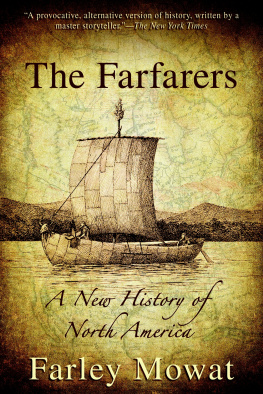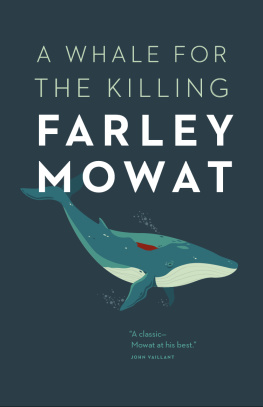Praise for
Farley
Highly readable... Farley is neither a critical nor a psychological biography; not the life, then, but a life, pure and simple. In it, Mowat comes across as a character in one of his own books.
The Globe and Mail
King has made the literary biography something of an art form... Farley is a feast.
Calgary Herald
Biography at its best: well-researched, sympathetic but not fawning, and wonderfully written. The book is both intriguing and timely... A generous, but rigorously honest appraisal, and a major contribution to Canadian literature.
The London Free Press
Lucid, even-handed prose... A sympathetic portrait.
The Hamilton Spectator
Admirers of Farley Mowat will find much to like in James Kings sturdy biography of a writer who has entertained, and in some cases maddened, readers throughout the world... King shows just how bluntly honest Mowats view of himself as anything but a hero in war is.
Edmonton Journal
King makes the case for Farley as a prophet who deserves to be honoured... Judiciously quoting from Mowats best work, King shows Mowats rare gift for transporting the reader into an alternate reality... King tells us of a quieter soul, the grown-up who never lost the wonder he experienced as a lonely boy wandering through boreal forests, observing, collecting, measuring, valuing... [King] is now the best of our literary biographers.
Quill & Quire
I wasnt a chapter into Farley when I discovered that there was much about this icon of Canadian letters that was new, revealing, and quite touching... Farley, like its subject, is a lively biography [that puts] a human face on a familiar figure.
The Sun Times (Owen Sound)
King has succeeded brilliantly in portraying the real Farley Mowat... In this compelling biography, James King reminds Canadians that Farley Mowat should be celebrated as the writer who passionately raised awareness about all creatures great and small.
Kitchener-Waterloo Record
Its an illuminating and exhaustive journey into the private world of a very public man... Farley may well be [Kings] finest work to date.
The StarPhoenix (Saskatoon)
A highly readable biography of a piece-of-work in progress... A valuable backgrounder for those about to delve into Mowats oeuvre.
Kirkus Reviews
[A] well-written portrait incorporating all aspects of Mowats often controversial life... A colourful look at a truly fascinating bloke.
The Toronto Sun
James King has done an exceptional job of portraying this fascinating and sometimes troubled legend... This moving biography gives us a sensitive insight into the complicated life of a controversial figure who, despite everything, is one of the most brilliant writers of our time.
The Lethbridge Herald
King has done a service in bringing Mowats accomplishments to the attention of a new generation of readers.
Winnipeg Free Press
I could not have written this book without the cooperation, encouragement, assistance and warm hospitality of Farley and Claire Mowat. My greatest obligation is to them. I learned a great deal from speaking with the late Frances Mowat, and I have also benefited enormously from time spent with John Mowat, Rosemary Mowat and Sandy Mowat.
In interviews the following have provided me with much needed and appreciated information: Pierre Berton, Anita and David Blackwood, Janice Boddy, Silver Don Cameron, Elizabeth Campbell Cox, Peter Davison, Dorothy and John de Visser, Mary Elliott, Beryl Gaspardy, Ole Gjerstad, Jack Granatstein, Harold Horwood, Marie Heydon Johnston, Jack McClelland, Lily Miller, Wade Rowland, Ed and Lily Schreyer, Andy Thomson, Ervin and Janice Touesnard, Vi Warren, Catherine Wilson and Ron Wright. For help in uncovering vital details, I wish to thank Stephen Cummings, Janet Friskney, Muriel Maxwell, Lorrie Minshall, Suzanne Mullett, Robin Russell, Sheila Turcon and Shirley Turner. Stephen Harding served briefly as my research assistant, and I am deeply grateful to him for sorting through the Angus Mowat papers at the University of Western Ontario.
John Orange, author of Farley Mowat: Writing the Squib, has been generous with assistance and encouragement. John Lutman at the University of Western Ontario Library and Apollonia Steele at the Research Collections at the University of Calgary Library have given me much needed assistance. As is their custom, Carl Spadoni and Charlotte Stewart at the Research Collections at the McMaster University Library have done all in their power to aid me. Anne McDermid has been unflagging in providing assistance and comfort.
I am deeply grateful to Stephanie Fysh for copyediting this book with great thoroughness and sensitivity. Proofreader Vivien Leong, as well as Nicole Langlois and Roy Nicol at HarperCollins, made many useful suggestions. From the outset, Phyllis Bruce has been a strong booster of this project. I have benefited enormously from her enthusiasm, acumen and kindness.
On January 6, 1999, a reader wrote to the Globe and Mail, When will you finally move Farley Mowat and [his 1997 non-fiction book] The Farfarers into the fiction column of the National Bestsellers List? After all, everyone in Canada knows that Farley Mowat is, himself, a purely fictional character. Years after the fact, Farley is convinced that his adoption of a public personathe outspoken and more than a trifle exhibitionistic young manwas really the brainchild of his publisher and close friend, Jack McClelland: I think we were having one of our liquid lunches, and as we reeled back toward the office, Jack said, You have to present an image. So I listened and I worked out my image: a kilt-wearing, swaggering, mooning, drinking Farley Mowat. It was always a cardboard cutout, and it was very useful. I could carry it in front of me, and be my own self behind it. I dont need it any more.
The cutout may be cardboard, but Farley still wears it when it suits himand when he needs it. I like a good fight if theres a good reason for doing it, he admits, and adds: Ill break my ass to save whales or to do something for people in distress. When the writer and broadcaster Peter Gzowski interviewed him at the Harbourfront International Festival of Authors in 1999 and debated with him about the number of facts a non-fiction writer owed his readers, Farley bellowed, Fuck the facts!
But behind this facade is a private person hidden from the public, a man quite unlike the public Farley Mowat. A non-fiction writer with superb narrative instincts, he remains a tireless advocate of the Inuit, wolves, whales and a host of other endangered peoples and species. Whatever the subject, he writes with finesse, allowing his stories the breathing room they need to hit their mark.
He is perhaps the best-known Canadian writer of all time, but what is his place in Canadian literature? Perhaps the most apt comparison is with the American transcendentalist writer and prophet Henry David Thoreau, who withdrew to Walden Pond in 1845, observed everything about him and then drew comparisons between the integrity of the natural world and the vainglory of the human. Like Thoreau, Farley had the instinct to become a hermit; like Thoreau, Farley resisted that impulse and wrote of humanitys struggle to become a compassionate overseer of planet Earth.
In this biography, I have attempted to portray the real Farley Mowat by bringing the public and private together and, in the process, to provide a multi-layered biography of a man who, it turns out, is more fascinating than the legend he has crafted.

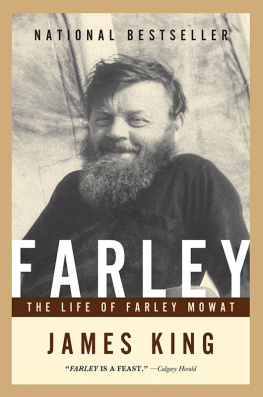

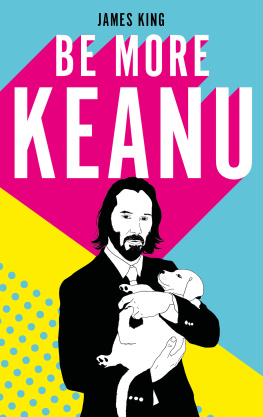

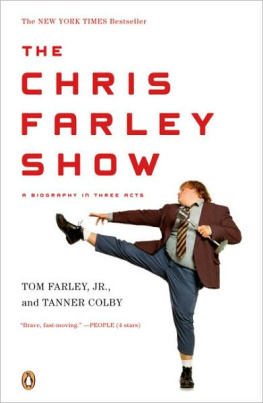
![Farley Mowat - People of the Deer [Paperback]](/uploads/posts/book/52958/thumbs/farley-mowat-people-of-the-deer-paperback.jpg)
